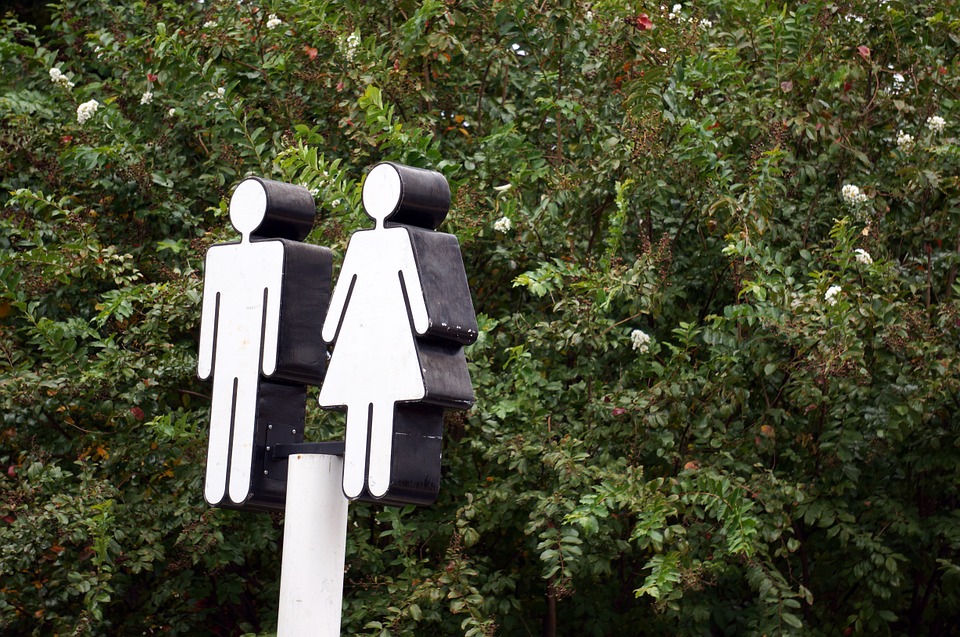How to Guess the Gender of French Nouns Posted by Elizabeth Schmermund on Jun 29, 2015 in Grammar
One of the hardest things about French is memorizing the genders of nouns. In the beginning, it’s based on pure memorization. However, after a while, many non-native French speakers will tell you that they just have a feeling about a word, even if its one they’ve never heard before.

But, as the band Boston puts it, it’s “more than a feeling.” If you know a couple of loose rules (and I use “loose” here to mean that, like many French rules of spelling and grammar, there are many exceptions), you too can take an educated guess about the gender of a noun. And, even better, you’ll often be right. A 2005 study done by Roy Lyster of McGill University shows that “81 percent of feminine nouns and 80 percent of masculine nouns are rule governed, having endings that systematically predict their gender.” Quite simply, this means that if you know which word endings are typically masculine and which are typically feminine, you’ll be right about the gender of the word 80% of the time.
The following list shows word endings that, according to Lyster’s study accurately reflect gender over 90% of the time:
Feminine noun endings:
-aie (as in haie) — 100%
-oue (as in boue) — 100%
-eue (as in banlieue) — 100%
-ue (as in rue) — 100%
-arbe, -ombe, -ourbe (as in barbe) — 100%
-ion (as in station) — 98%
-ie (as in scie) — 98%
-euse, -ouse, -ase, -aise, -ese, -oise, -ise, -yse, -ose, -ause, -use (as in perseuse) — 97%
-té, -ié, -ée (as in dictée) — 95%
-ette, -ete, – ˆ ete, ` -atte, -aite, -otte, -utte, -aute, -eute, -oite, -oute, -arte, -erte, -orte, -ante, -ente, -inte, -onte (as in dette) — 95%
-ande, -ende, -onde, -ade, -ude, -aude, -arde, -orde, -ourde (as in viande) — 95%
-asse, -ace, -esse, -ece, -aisse, -isse/-ice, -uce, -ousse, -ance, -anse, -ence, -ince, -once, -ource/-ourse (as in classe) — 93%
Masculine noun endings:
-ai, -ais, -ait, -es, -et (as in délai) — 100%
-it, -est (as in granit) – 100%
-ail, -eil, -euil, -ueil (as in deuil) — 100%
-an, -and, -ant, -ent (as in volcan) — 99%
-at, -as, -ois, -oit (as in bois) — 99%
-as, -is, -os, -us, -ex (as in atlas) — 99%
-al, -el, -il, -ol, -eul, -all (as in festival) — 99%
-in, -int, -om, -ond, -ont, -on (as in pont) — 99% (but not after sc)
-ou, -out, -out, -oux (as in bijoux) — 98%
-i, -il, -it, -is, -y (as in defi) — 97%
-air, -er, -erf, -ert, -ar, -arc, -ars, -art, -our, -ours, -or, -ord, -ors, -ort, -ir, -oir (as in éclair) — 97%
-eau, -au, -aud, -aut, -o, -os, -ot (as in rideau) — 93%
But, of course, nothing is ever black and white. Here are some ambiguous endings, which means that they are split between being masculine and feminine gender:
-a, -ia, -oi/-oix, -çon/-son
-erce/-erse, -orce/-orse
-aque, -eque, -ique, -oque
-ane, -ene, -one, -oine
-amme, -omme, -ame, -ime, -ume, -arme, -erme, -orme
-uge, -ige, -erge, -ange, -onge
-erbe, -ape, -ipe, -ope, -oupe, -aphe
-are, -ore, -oire, -ir, -ere, -re
-ede, -ide, -ode
-ate, -ite, -ote, -ute, -ecte, -ulte, -este, -iste, -epte
-agne, -igne, -ogne, -aigne/-eigne
Check out the rest of Lyster’s study for more detailed information about additional gender predictive endings. And don’t forget to enjoy Boston’s “More than a Feeling” below!

Build vocabulary, practice pronunciation, and more with Transparent Language Online. Available anytime, anywhere, on any device.
About the Author: Elizabeth Schmermund
Bonjour tout le monde! I'm a freelance writer, doctoral student, mom, and Francophile. I'm excited to share some of my experiences living in France, as well as the cultural nuances that I've learned being married to a Frenchman, with all of you. To find out more about me, feel free to check out my website at http://www.imaginistwriter.com. A la prochaine!




Comments:
Marie-Claude André:
And don’t forget “délices, amours, orgues”: masculine when only one but feminine when plural…
kunal:
Bcp des livres aussi montrent méme chose comme “age, cle, ème…. etc pour (M).
Et en-enne, eur-euse … etc (F).
kunal:
Mreci bcp pour cette list. …